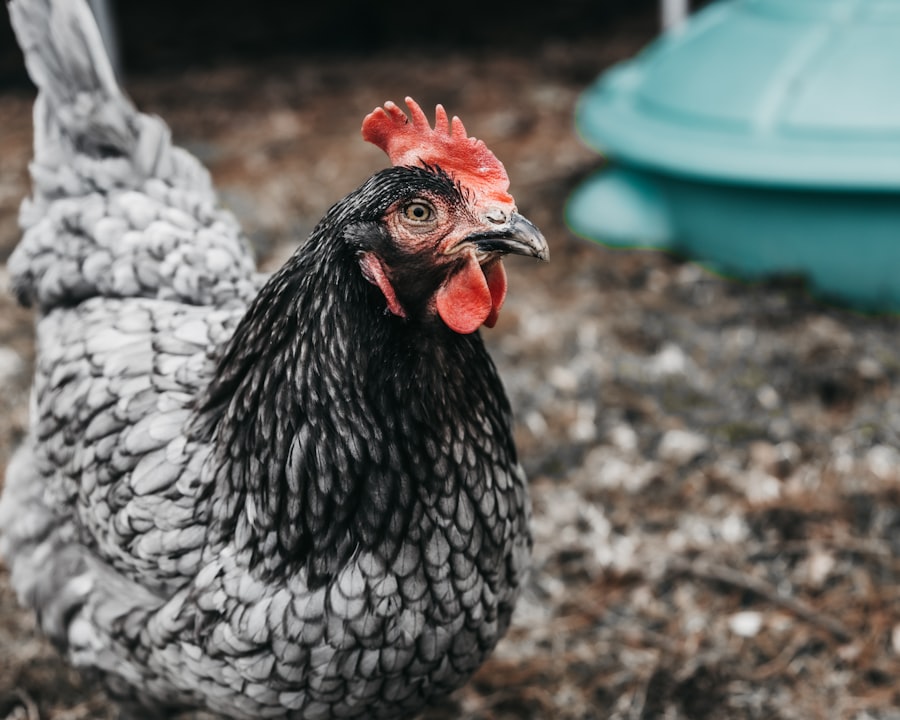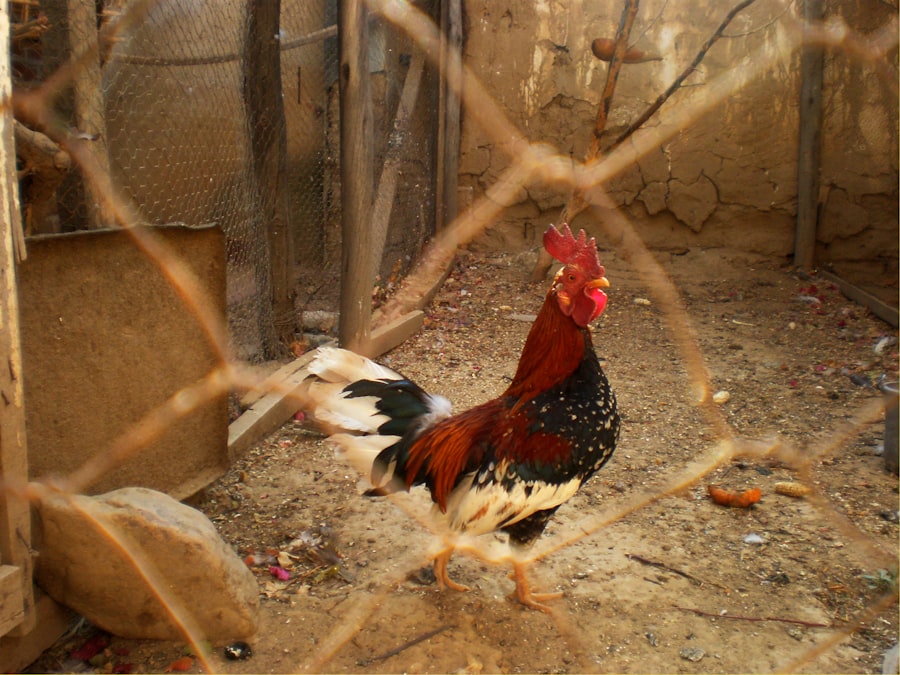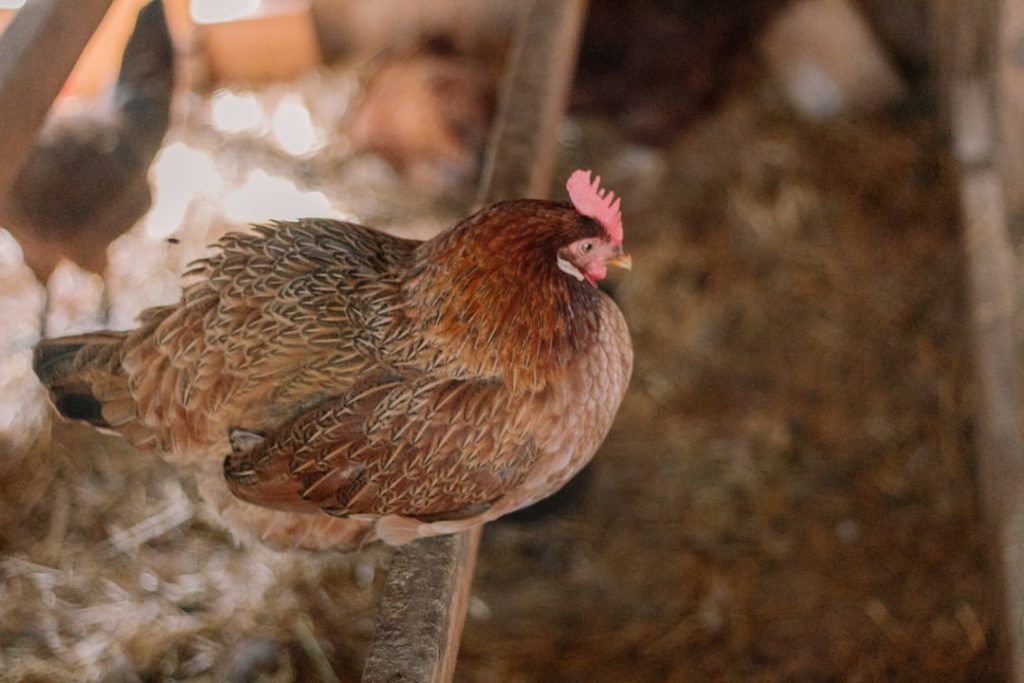Maintaining a cool environment for baby chickens is crucial for their health and development. Like adult chickens, chicks are susceptible to heat stress, which can lead to reduced feed intake, slower growth rates, and in severe cases, mortality. Baby chickens are particularly vulnerable to heat stress due to their underdeveloped ability to regulate body temperature effectively.
Providing a comfortable and cool environment is essential for the proper growth and development of baby chickens. Failure to do so can result in stunted growth, increased susceptibility to diseases, and potential fatalities. Poultry farmers and backyard chicken keepers must take proactive measures to ensure their chicks remain cool and comfortable, especially during hot weather conditions.
Understanding the importance of temperature regulation for baby chickens allows caretakers to implement necessary steps to prevent heat stress and promote the overall health and well-being of their young flock. This knowledge is particularly critical during the summer months when ambient temperatures are higher and the risk of heat stress is increased.
Table of Contents
- 1 Providing adequate shade and ventilation
- 2 Offering cool and fresh water
- 3 Using cooling techniques such as misting or fans
- 4 Adjusting feeding schedules for hot weather
- 5 Monitoring baby chickens for signs of heat stress
- 6 Implementing additional measures for extreme heat conditions
- 7 FAQs
- 7.1 What are the signs of heat stress in baby chickens?
- 7.2 How can I keep baby chickens cool in hot weather?
- 7.3 What are some tips for providing shade for baby chickens?
- 7.4 How can I improve ventilation in the chicken coop during hot weather?
- 7.5 How often should I check on my baby chickens during hot weather?
Key Takeaways
- Keeping baby chickens cool is crucial for their health and well-being
- Providing adequate shade and ventilation helps regulate the temperature for baby chickens
- Offering cool and fresh water is essential to prevent dehydration in hot weather
- Using cooling techniques such as misting or fans can help lower the temperature for baby chickens
- Adjusting feeding schedules for hot weather can prevent heat stress and digestive issues in baby chickens
Providing adequate shade and ventilation
Protecting from Direct Sunlight
One of the most critical factors in keeping baby chickens cool is providing adequate shade and ventilation in their living environment. Shade is essential for protecting baby chickens from direct sunlight, which can quickly raise the temperature in their living space. Without proper shade, baby chickens can become overheated and experience heat stress.
Creating a Comfortable Environment
Providing natural shade from trees or constructing artificial shade structures can help to keep baby chickens cool and comfortable during hot weather. In addition to shade, proper ventilation is crucial for maintaining a comfortable temperature for baby chickens. Good ventilation helps to remove excess heat and moisture from the chicken coop or brooder, creating a more comfortable environment for the young birds.
Preventing Heat Stress
Adequate airflow can help prevent the buildup of heat and humidity, reducing the risk of heat stress in baby chickens. By providing adequate shade and ventilation, chicken keepers can create a more comfortable living environment for their baby chickens, helping to prevent heat stress and promote healthy growth.
Offering cool and fresh water

Another essential aspect of keeping baby chickens cool is ensuring that they have access to cool and fresh water at all times. Water is crucial for regulating body temperature and preventing dehydration, especially during hot weather. Baby chickens can quickly become dehydrated in high temperatures, leading to heat stress and other health issues.
Therefore, it is essential for chicken keepers to regularly check and refill water containers to ensure that their baby chickens have an adequate supply of cool and fresh water. In addition to providing cool water, chicken keepers can also add ice cubes or frozen water bottles to the water containers to help lower the temperature of the water. This can provide additional relief for baby chickens during particularly hot days.
It is also important to place water containers in shaded areas to prevent them from heating up in the sun. By offering cool and fresh water, chicken keepers can help their baby chickens stay hydrated and maintain a comfortable body temperature, reducing the risk of heat stress.
Using cooling techniques such as misting or fans
In addition to providing shade, ventilation, and cool water, chicken keepers can also use various cooling techniques to help keep baby chickens cool during hot weather. Misting systems can be installed in the chicken coop or brooder to create a fine spray of water that helps lower the ambient temperature. Misting can provide relief for baby chickens by cooling the air and reducing the risk of heat stress.
Additionally, fans can be used to improve airflow and create a more comfortable environment for baby chickens. Fans can help circulate air and remove excess heat, helping to prevent heat stress in young birds. Another effective cooling technique is using frozen treats or ice packs for baby chickens to peck at.
This not only provides them with a source of hydration but also helps lower their body temperature. Placing frozen treats or ice packs in the chicken coop or brooder can provide additional relief for baby chickens during hot weather. By using cooling techniques such as misting, fans, and frozen treats, chicken keepers can help their baby chickens stay cool and comfortable, reducing the risk of heat stress and promoting healthy growth.
Adjusting feeding schedules for hot weather
During hot weather, it is important for chicken keepers to adjust the feeding schedules for baby chickens to help them stay cool and comfortable. Feeding baby chickens during the cooler parts of the day, such as early morning or late evening, can help reduce their metabolic heat production. This can help prevent them from becoming overheated while digesting their food.
Additionally, offering smaller, more frequent meals throughout the day can help prevent overeating and reduce the metabolic heat generated during digestion. It is also important to provide baby chickens with a balanced diet that includes electrolytes to help them stay hydrated during hot weather. Electrolytes can help replace essential minerals lost through sweating and panting, helping baby chickens maintain their overall health and well-being.
By adjusting feeding schedules and providing a balanced diet with electrolytes, chicken keepers can help their baby chickens stay cool and comfortable during hot weather, reducing the risk of heat stress.
Monitoring baby chickens for signs of heat stress

Monitoring Baby Chickens for Heat Stress
Heat stress can be a significant threat to the health and well-being of baby chickens, especially during hot weather. It is essential to monitor them closely for signs of heat stress to identify any potential issues and take prompt action to address them.
### Identifying Signs of Heat Stress
Common signs of heat stress in baby chickens include panting, wing spreading, lethargy, reduced feed intake, and decreased activity. If any of these signs are observed, it is crucial to take immediate steps to help cool down the baby chickens and prevent further heat stress.
### Monitoring Behavior and Activity Levels
In addition to visual signs, it is also important to monitor the overall behavior and activity levels of baby chickens during hot weather. Keeping a close eye on their behavior can help chicken keepers identify any changes that may indicate heat stress.
### Taking Proactive Measures
By monitoring baby chickens for signs of heat stress, chicken keepers can take proactive measures to help them stay cool and comfortable, reducing the risk of heat-related health issues.
Implementing additional measures for extreme heat conditions
In extreme heat conditions, additional measures may be necessary to help keep baby chickens cool and comfortable. This may include using portable air conditioning units or evaporative cooling systems to lower the temperature in the chicken coop or brooder. These systems can provide effective relief for baby chickens during extreme heat conditions, helping to prevent heat stress and promote healthy growth.
In addition to cooling systems, providing additional shade structures or relocating baby chickens to a cooler area can also help mitigate the effects of extreme heat. It is important to take proactive measures to protect baby chickens from extreme temperatures and prevent heat stress from occurring. By implementing additional measures for extreme heat conditions, chicken keepers can help ensure the health and well-being of their young flock during periods of intense heat.
In conclusion, keeping baby chickens cool is essential for their health and well-being, especially during hot weather. By providing adequate shade and ventilation, offering cool and fresh water, using cooling techniques such as misting or fans, adjusting feeding schedules, monitoring for signs of heat stress, and implementing additional measures for extreme heat conditions, chicken keepers can help their baby chickens stay cool and comfortable while reducing the risk of heat-related health issues. It is important for poultry farmers and backyard chicken keepers to prioritize the well-being of their young flock by taking proactive measures to prevent heat stress and promote healthy growth.
If you’re looking for ways to keep your baby chickens cool in hot weather, you may also be interested in learning about the benefits of renting a chicken coop. Renting a chicken coop can provide a safe and comfortable environment for your chickens, especially during extreme temperatures. Check out this article to learn more about the advantages of renting a chicken coop and how it can help keep your chickens healthy and happy.
FAQs
What are the signs of heat stress in baby chickens?
Signs of heat stress in baby chickens include panting, holding their wings away from their bodies, lethargy, decreased appetite, and decreased egg production in laying hens.
How can I keep baby chickens cool in hot weather?
To keep baby chickens cool in hot weather, provide plenty of shade, good ventilation, and access to cool, fresh water at all times. You can also use fans or misters to help lower the temperature in the coop.
What are some tips for providing shade for baby chickens?
You can provide shade for baby chickens by using tarps, umbrellas, or natural shade from trees or shrubs. Make sure the shade is large enough to cover the entire area where the chickens spend most of their time.
How can I improve ventilation in the chicken coop during hot weather?
To improve ventilation in the chicken coop, make sure there are plenty of windows, vents, and openings to allow for air flow. You can also use fans to help circulate the air and keep it from becoming stagnant.
How often should I check on my baby chickens during hot weather?
During hot weather, it’s important to check on your baby chickens frequently, especially during the hottest parts of the day. Make sure they have access to water and shade, and watch for any signs of heat stress.
Meet Walter, the feathered-friend fanatic of Florida! Nestled in the sunshine state, Walter struts through life with his feathered companions, clucking his way to happiness. With a coop that’s fancier than a five-star hotel, he’s the Don Juan of the chicken world. When he’s not teaching his hens to do the cha-cha, you’ll find him in a heated debate with his prized rooster, Sir Clucks-a-Lot. Walter’s poultry passion is no yolk; he’s the sunny-side-up guy you never knew you needed in your flock of friends!







